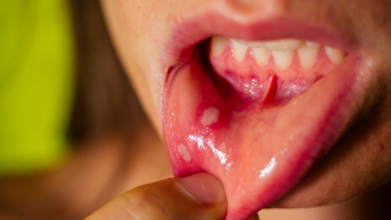- Health Conditions A-Z
- Health & Wellness
- Nutrition
- Fitness
- Health News
- Ayurveda
- Videos
- Medicine A-Z
- Parenting
- Web Stories
Morning-After Pill To Be Available For Free At Pharmacies In England

Credits: Canva
Women in England will soon be able to obtain the morning-after pill for free from pharmacies, a move aimed at improving access to emergency contraception. While this medication is already available at no cost from most GPs and sexual health clinics, getting it from a pharmacy has often depended on location and cost, with some women paying up to £30.
The government hopes this initiative will reduce inequalities, particularly for women in disadvantaged areas, and ease pressure on GP services.
What Is Emergency Contraception?
Emergency contraception is used to prevent unwanted pregnancies after unprotected sex or contraceptive failure. It is most effective when taken as soon as possible—ideally within 3 to 5 days. However, the effectiveness decreases with time.
By making the morning-after pill widely available through the NHS, the government aims to remove barriers that many women currently face.
Ending the ‘Postcode Lottery’
Health Minister Stephen Kinnock emphasized that access to emergency contraception should not depend on a woman’s location or financial situation.
"Women across England face an unfair postcode lottery when seeking emergency contraception, with access varying dramatically depending on where they live," he said.
Kinnock highlighted that the plan ensures all women can access this essential healthcare "when they need it, regardless of where they live or their ability to pay."
Why This Change Matters
Improved Accessibility – Many women struggle to access a GP or sexual health clinic in time to get emergency contraception. Offering it at pharmacies removes this obstacle.
Reduced Health Inequalities – Women in lower-income areas often face financial barriers to purchasing the morning-after pill. This change ensures equal access.
Less Pressure on GPs – By allowing pharmacies to provide free emergency contraception, GP appointments can be freed up for other medical needs.
Part of a Larger Healthcare Investment
The initiative will be officially announced on Monday as part of a broader government investment in rebuilding community pharmacies.
With this change set to take effect later this year, England is taking a significant step toward making emergency contraception more accessible, ensuring that all women have the right to make informed choices about their reproductive health without financial or geographical barriers.
Women's Health Elsewhere
While this step has been welcomed, in the US, women's health, especially the reproductive health has been a cause of concern. After Donald Trump's return and his second term, women have been panic buying birth control pills. As per Google data, birth controls and Plan B have trended higher than they have trended in June 2022, during the Roe v. Wade judgement, when it had been overturned.
The Associated Press also reported that requests were made for long-term birth control and permanent sterilization across the nation since the election. Companies have told the AP that they have seen a spike in the number of orders, as high as 966% increase in sales from the week before in the 60 hours after the election.
This is in the backdrop of anti-abortion advocacy that Trump and the party he represents, i.e. the Republican Party believes in. Recently, a bill was introduced by Republican Rep Emory Dunahoo who sought to criminalize most abortion from the moment of fertilization. It further expands Georgia's existing "personhood" law, which grants certain rights to the unborn children, such as tax breaks and child support. If passed, this law would make Georgia one of the strictest states on abortion, and joining at least five other states with similar personhood laws.
At this moment, Georgia bans most abortions after a "detectable human heartbeat" is found, which can occur as early as six weeks into the pregnancy. This is also the phase when many women can even realize that they are pregnant. The law is among the strictest in the nation, though, anti-abortion advocates argue it does not go far enough.
Mouth Ulcers Are Common, But Run To Your Doctor Or Dentist If You Notice These Signs

A tiny sore in your mouth might not seem like a big deal until it starts to sting every time you eat, drink, or even breathe. Mouth ulcers are more common than we give them credit for. Usually, they’re nothing to worry about. But if they’re showing up a bit too often or staying longer than usual, it’s time to pay attention.
Here’s a look at when to shrug it off, when to switch to soup, and when to book that appointment with your dentist or GP.
Ulcers Happen But Not All Should Be Ignored
Normally, ulcers usually clear up within two weeks and are often linked to being run down or low on certain vitamins. But if that ulcer refuses to budge after three weeks, it’s not something to ignore. Cancer Research UK recommends seeing a doctor or dentist if an ulcer or a red or white patch is still hanging around after three weeks. It could be harmless, but it could also be your body waving a little red flag.
DIY Healing
Most mouth ulcers don’t need a lot to treat. The NHS says they’ll usually heal with time and a little TLC. That said, you can speed things up by not doing things that make them worse.
Skip the spicy curries, salty snacks, acidic foods, and crunchy culprits like toast or crisps. Basically, if it hurts to eat it, you shouldn’t be eating it. Hot and acidic drinks like fruit juice are also a no-go. As for toothpaste, check the label, avoid ones with sodium lauryl sulphate, a foaming agent that can irritate ulcers.
Instead, go soft and soothing. Stick to cool drinks, go for gentle foods, and switch to a soft-bristled toothbrush that won’t scratch or poke at sensitive areas. Regular dental check-ups and a balanced diet also go a long way in keeping your mouth happy.
Not All Ulcers Are Created Equal
Most of the time, ulcers are just that: temporary sores. But if you’re dealing with one that refuses to heal, is especially large or painful, or comes with other symptoms like swelling, difficulty eating, or a lump in the neck, don’t play the waiting game. It might be something more serious, like an infection or in rare cases, something that requires more thorough investigation.
Prevention
If you’ve had your fair share of ulcers and want to avoid the next round, the answer lies in prevention. Aside from dodging the usual food triggers, it helps to manage stress, get enough sleep, and eat a diet rich in iron, folate, and B vitamins. Also, drink plenty of water and make sure your mouth stays clean.
Regular dental visits help your dentist spot the early signs of anything unusual and give you personalised tips on how to avoid recurring ulcers.
Don’t Panic, But Don’t Ignore
Mouth ulcers are rarely serious. Still, it’s better to be safe than sorry. If your ulcer overstays, refuses to heal, or comes with other odd symptoms, get it checked. And while you wait it out, treat your mouth gently. Avoid fiery foods, switch to a soothing routine, and try not to poke at it with your tongue.
When Your Phone Ping Feels Like a Threat: The Science Behind Cortisol Spikes, Sleep Disruption and Notification Anxiety

If you’ve ever felt your heart rate spike just because your phone buzzed during dinner, you’re not alone. In our hyper-connected lives, notifications can set off a full-blown biological alarm. But what’s happening inside you isn’t just “in your head”; it’s ancient biology meeting modern tech, and the result is often anxiety, chronic stress and, eventually, burnout.
Here’s why you panic every time that screen lights up and how to stop spiralling into stress over a simple message.
Your brain may be rational, but your hormones have other ideas. According to reports, the moment a message lands, especially one that feels urgent or work-related, your body launches into ‘fight or flight’ mode.
Cortisol, the stress hormone, floods your system and primes you to react. And if the ping is from your boss or an emotionally charged source, the cortisol surge can be even more intense.
To make things worse, adrenaline often tags along. This amps up alertness, raises your heart rate and makes it nearly impossible to relax. Your brain is preparing you to flee from danger even if the only threat is an email with the subject line “quick update”.
The Dopamine Trap
Just to complicate things, dopamine, the pleasure chemical, also plays a part. Every time you check your phone and respond, your brain rewards you with a little shot of satisfaction. That’s why it’s so easy to get hooked and why you keep checking even though it stresses you out.
When Oxytocin Gets Triggered
Normally, messages from loved ones trigger oxytocin, the hormone that helps us bond and feel safe. But when the messages are draining, demanding or tied to work, that warm fuzzy feeling gets pushed out by stress chemicals. Over time, this can disrupt your ability to be present and genuinely connect with others, leading to burnout.
Melatonin Meltdown
And if you’re checking those pings before bed, you should stop. Reports warn that notifications late at night reduce the production of melatonin, the hormone responsible for quality sleep. Without it, you may struggle to nod off, stay asleep or feel rested, fuelling a cycle of fatigue, brain fog and even more stress.
The Long-Term Fallout
If this sounds like an exhausting loop, it is. Consistent cortisol spikes and dopamine hits can wreak havoc on your health. Think weight gain, insomnia, poor focus and a fried nervous system. In fact, studies show that 76 per cent of millennials and 40 per cent of baby boomers admit to feeling anxious the moment their phone lights up.
Here are a few tricks to help you break the cycle.
1. Set Notification Boundaries
Draw a digital line in the sand. Turn off alerts after a set time or batch-check messages every few hours instead of reacting instantly. Use your phone’s ‘Do Not Disturb’ mode to protect time for real life.
2. Mute the Noise
Not every ping is essential. Reports suggest turning off non-urgent app and group chat notifications. Fewer pings mean fewer cortisol spikes and less temptation to fall down the notification rabbit hole.
3. Prioritise In-Person Conversations
Texts are easy to misread, and fast replies aren’t always the best ones. If possible, have real conversations with friends, colleagues or family. Face-to-face talks promote oxytocin, reduce stress and avoid unnecessary misunderstandings.
4. Train Yourself to Pause
Next time your phone buzzes, don’t jump. Take five deep breaths. Count to five. Ask yourself if the message needs an immediate reply. This tiny pause rewires your stress response and reins in that hormone cascade.
5. Keep Work Messages in Their Lane
When work bleeds into personal time, stress seeps in. It is recommended to have a chat with your manager or team about boundaries. Set a window for work-related conversations and stick to it. Your wellbeing shouldn’t be a casualty of always being “available”.
No Time For Brain Decline - Lifestyle Habits That Reduce The Risk Of Dementia In Older Adults

The interesting thing about people is how unique everyone’s perspectives are. Everyone has their way of thinking, their own way of doing things as well as their own unique memories. These aspects make us human and set us apart from everyone. Can you imagine losing all of these because of a disease that robs you of your cognitive abilities? Dementia is not as uncommon as we think it is. Affecting millions, we are yet to find a cure for this disease. While researchers have identified risk factors, does changing them make any difference?
A new study asked an important question: Can making specific changes to our daily lives actually improve or protect our thinking skills as we get older, especially for those who might be at risk of memory problems or dementia?
Organized Efforts Work Better
This study involved over 2,100 older adults who faced a higher chance of their thinking skills declining. We compared two different groups over two years. One group followed a well-organized plan for healthy living. This plan included regular moderate to intense exercise, sticking to a special "MIND diet," doing activities that challenge the brain and encourage spending time with others, and regular checks on heart health. The other group got a less organized plan that they had to follow more on their own.
This was a big study where neither the participants nor the initial assessors knew which group someone was in. It took place in 5 different medical centers across the U.S. from 2019 to 2023. We included 2,111 people between 60 and 79 years old who weren't very active and didn't eat the best diet. To make sure we studied people truly at risk, they also had to have at least two other risk factors, like a family history of memory issues, heart problems, or just being older.
- Structured Group, who received a detailed, ongoing plan for exercise, diet, brain-challenging activities, social time, and heart health checks. They had more guidance and were regularly checked on.
- Self-Guided Group, who got general advice on the same healthy lifestyle areas but had less structure and fewer regular check-ins.
The main goal was to see how much a person's overall thinking ability changed each year over the two-year study. We used a combined score that looked at different brain skills like planning, remembering things, and how quickly their brain worked.
Results of the Study
Out of all the people who started, almost 90% finished the two-year assessment. Both groups showed some improvement in their thinking scores over time. However, the structured group's improvement was clearly bigger than the self-guided group's.
Interestingly, the benefits of the structured program were helpful whether or not a person carried a specific gene (APOE 4) linked to Alzheimer's risk. But, the structured program seemed to help those who had lower thinking abilities at the beginning of the study even more.
We also kept track of any problems or side effects. The structured group actually reported fewer serious and non-serious problems compared to the self-guided group. The most common health issue overall was getting COVID-19.
What This Means for You
The results clearly showed that the organized group had a noticeably better improvement in their overall thinking abilities. Their brain scores went up more each year compared to the group that followed the less organized plan. This means that having a structured approach made a bigger positive difference for their brains.
The findings suggest that if you're an older adult at risk of memory problems, a structured, more involved healthy lifestyle plan is more helpful for your thinking skills than trying to do it all on your own with less guidance. We still need more research to see how much these brain improvements affect daily life and if they last for many years.
It's really important to find ways to slow down or prevent memory loss that can lead to dementia. Things we can do in our daily lives, like changing our habits, are promising because they are usually affordable, easy to access, and safe. They offer a good way to protect our brains without relying on medicines alone.
© 2024 Bennett, Coleman & Company Limited



